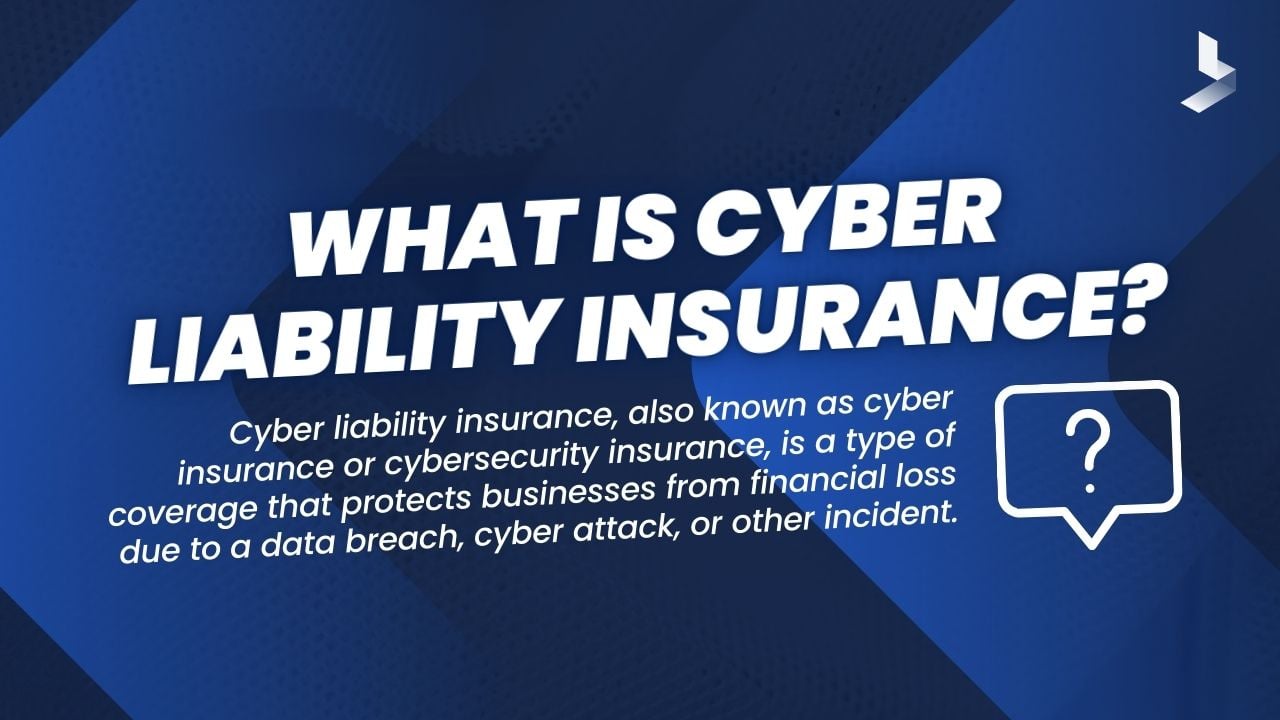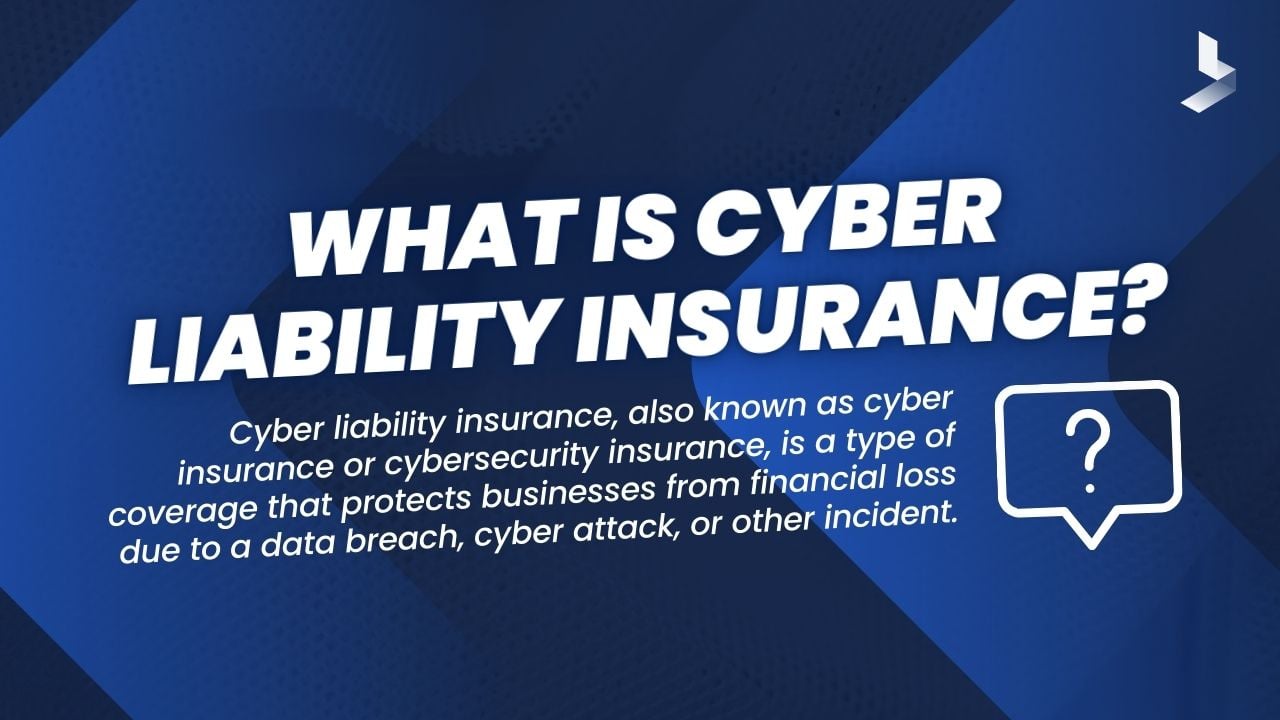Cyber Liability Insurance: Protecting Your Business in the Digital Age
In today’s digital world, businesses are increasingly dependent on technology, which brings both convenience and potential risks. As companies continue to store vast amounts of sensitive data and rely on online platforms for operations, the risk of cyberattacks and data breaches grows. This is where cyber liability insurance comes in, offering essential protection for businesses of all sizes against the financial fallout from these cyber threats.
In this article, we will explore what cyber liability insurance is, why it’s crucial for businesses, what it covers, and how you can determine if it’s right for your organization. We will also answer some of the most frequently asked questions (FAQs) to help clarify any doubts about this essential coverage.

What is Cyber Liability Insurance?
Cyber liability insurance is a specialized insurance policy designed to protect businesses against financial losses resulting from cyber incidents. These incidents may include data breaches, hacking attempts, ransomware attacks, and other types of cyberattacks. As the frequency and severity of cybercrimes continue to rise, this type of insurance has become a necessity for businesses that manage sensitive customer data or rely heavily on digital platforms.
The primary purpose of cyber liability insurance is to mitigate the costs associated with cyberattacks and data breaches, covering expenses such as legal fees, notification costs, data recovery, and even reputational damage.
Two Key Types of Cyber Liability Coverage
Cyber liability insurance generally consists of two main components:
1. First-party coverage: This covers the costs that the business incurs directly as a result of a cyberattack. This could include costs for data recovery, system repairs, and the business’s own expenses following a breach.
- Third-party coverage: This covers claims made by clients or customers whose data has been compromised due to the breach. It may include legal fees, settlements, and compensation for damages caused to affected individuals.
Why is Cyber Liability Insurance Important?
1. Protection from Expensive Cyberattacks
A single data breach or cyberattack can cost a business millions of dollars in damages. Beyond direct financial losses, companies often face regulatory fines, reputational harm, and customer compensation. Cyber liability insurance can help reduce these costs, ensuring that businesses don’t bear the full brunt of a cyberattack on their own.
2. Mitigates Legal and Regulatory Risks
Companies that fail to properly secure sensitive data may face legal action from customers, employees, or even regulatory bodies. With the rise of data protection laws, such as the General Data Protection Regulation (GDPR) in the European Union and the California Consumer Privacy Act (CCPA), businesses are required to safeguard customer information. Cyber liability insurance helps cover the costs of compliance, including legal fees and fines associated with data breaches.
3. Safeguards Your Business Reputation
Reputation is everything in the modern business world. A breach of customer data can seriously damage a company’s reputation, resulting in lost customers, declining sales, and even the failure of the business in extreme cases. Cyber liability insurance helps mitigate the financial damage from a breach, allowing businesses to focus on recovery and brand restoration.
4. Coverage for Business Interruption
A significant cyberattack can disrupt business operations, causing downtime and loss of productivity. Cyber liability insurance typically covers business interruption costs, helping businesses recover quickly and return to full operations.
What Does Cyber Liability Insurance Cover?
The coverage provided by cyber liability insurance can vary depending on the policy and provider. However, most policies will include protection for the following:
1. Data Breach Costs
In the event of a data breach, a cyber liability policy typically covers the costs related to:
– Customer notifications: Informing customers about the breach and the steps they need to take to protect themselves.
– Credit monitoring: Offering affected individuals credit monitoring services to help prevent identity theft.
– Public relations: Engaging PR services to help manage the aftermath and protect your company’s reputation.
2. Legal Fees and Settlements
Cyber liability insurance will often cover legal costs, including:
– Defending against lawsuits: If a business is sued by customers, employees, or third parties following a data breach.
– Regulatory fines and penalties: If your business is found in violation of data protection laws.
– Settlements: Covering any settlements or damages awarded to affected parties.
3. Ransomware and Extortion
If your company is targeted by ransomware, cyber liability insurance can help cover the costs of the attack, including the ransom payment (if legally permitted), system restoration, and lost income during the downtime.
4. Business Interruption Costs
When a cyberattack takes a business offline, the company may experience interruptions to its normal operations. This coverage helps replace lost income and pay for additional costs incurred while the business recovers from the attack.
5. Data Recovery and System Repair
Cyber liability insurance can help cover the costs associated with repairing or recovering compromised data, including expenses for IT specialists, recovery tools, and system upgrades to prevent future attacks.
6. Cyber Crime
Coverage may also extend to financial losses caused by cyber criminals, such as fraudulent wire transfers, social engineering attacks, and phishing schemes that lead to the loss of company funds.

Do You Need Cyber Liability Insurance?
While it’s not a legal requirement to have cyber liability insurance, any business that stores sensitive information, uses online payment systems, or relies on digital infrastructure should strongly consider it. Here are some factors that may help you determine whether cyber liability insurance is right for your business:
1. The Type of Business You Operate
Businesses that handle sensitive data, such as customer credit card information, medical records, or personal identification data, are prime targets for cyberattacks and should definitely have cyber liability coverage.
2. The Size of Your Business
Small and medium-sized businesses (SMBs) may assume they are not at risk, but they are increasingly being targeted by cyber criminals. A cyberattack can have devastating financial consequences for any size of business, so having coverage is essential.
3. Regulatory Compliance
If your business is subject to regulatory standards like GDPR, HIPAA, or PCI-DSS, you must ensure that your business is compliant with data protection laws. Cyber liability insurance can help cover the costs associated with non-compliance and mitigate penalties.
4. Your Current Security Measures
Even if you have strong security measures in place, no system is entirely foolproof. Cybercriminals are constantly finding new ways to exploit vulnerabilities. Cyber liability insurance can provide an extra layer of protection in case your defenses are breached.
How Much Does Cyber Liability Insurance Cost?
The cost of cyber liability insurance depends on several factors, including the size of your business, industry, and the level of coverage you need. On average, businesses can expect to pay anywhere from $1,000 to $7,500 per year for a cyber liability policy. The cost may be higher for businesses with more employees or sensitive data.
To get an accurate quote, it’s best to work with an insurance broker who can assess your business’s needs and help tailor a policy to suit your requirements.
Frequently Asked Questions (FAQs)
1. What is the difference between first-party and third-party cyber liability coverage?
- First-party coverage protects your business directly against the costs incurred due to a cyber incident, such as data recovery, business interruption, and ransomware attacks.
- Third-party coverage protects you against claims made by customers or clients whose data has been compromised, covering legal fees, fines, and settlements.
2. Does cyber liability insurance cover employee negligence?
In some cases, cyber liability insurance may cover incidents caused by employee negligence, such as clicking on phishing emails that lead to a breach. However, this depends on the terms of your policy and whether negligence falls under the coverage scope.
3. Is cyber liability insurance necessary for small businesses?
Yes, small businesses are increasingly targeted by cybercriminals due to their often weaker cybersecurity measures. Cyber liability insurance provides an essential layer of protection for any business, large or small, in today’s connected world.
4. What factors influence the cost of cyber liability insurance?
The cost of coverage depends on several factors, including:
– The size of your business
– The level of risk associated with your industry
– The types of data you store
– Your existing security protocols
Conclusion
As cyber threats continue to evolve, protecting your business with cyber liability insurance is no longer optional—it’s a critical part of any modern risk management strategy. This coverage helps mitigate the financial impact of cyberattacks, data breaches, and other digital risks, allowing businesses to recover quickly and continue operations.
By understanding the value of cyber liability insurance and the coverage it provides, you can ensure that your business is protected from the potentially devastating consequences of a cyberattack. Don’t wait until it’s too late—investing in cyber liability insurance today could be the key to your company’s long-term success in the digital age.


